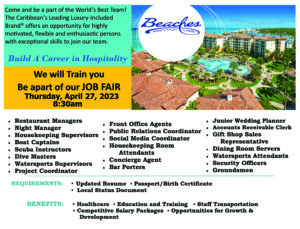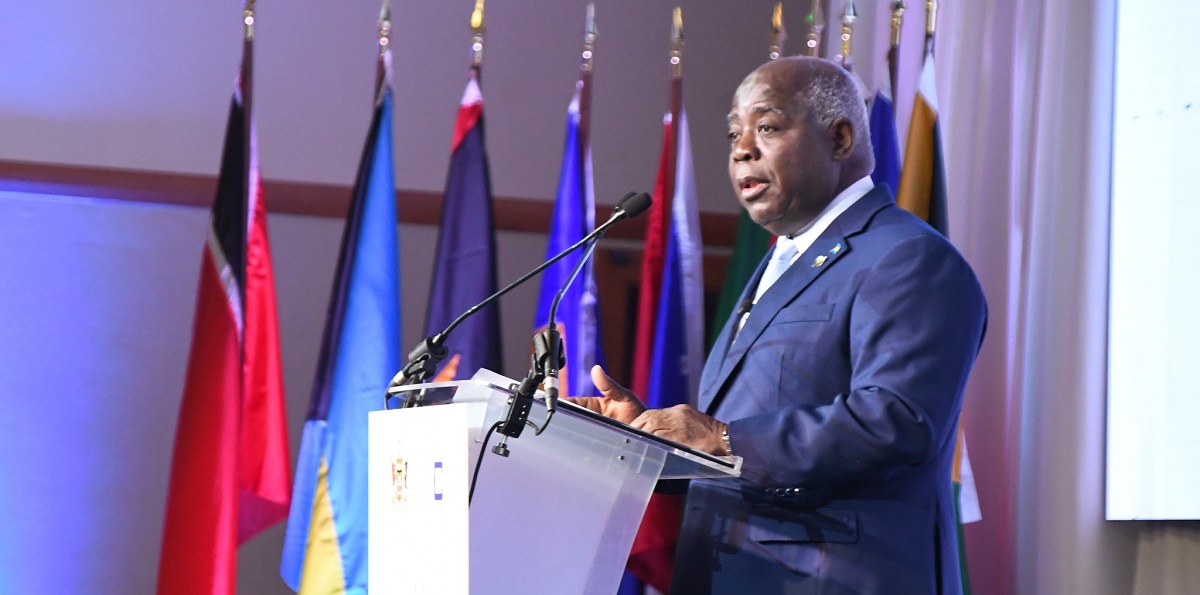By Rashaed Esson
Staff Writer
#TrinidadandTobago, April 21, 2023 – The Honourable Philip Davis, KC, MP, Prime Minister of the Commonwealth of The Bahamas and Chairman of CARICOM, at the Crime Symposium, which lasted from April 17th to 18th, 2023, in his opening remarks said crime is an “epidemic,” which we should treat like any public health crisis by defining, monitoring the problems, and identifying the risks to develop mitigation strategies.
Davis said, “An epidemic of violence grips our region, one that claims lives and generates fear and anger.”
To emphasize this, he pointed to statistics revealing that in 2022; Jamaica had à homicide rate of 52.9 per 100,000 inhabitants, Trinidad, 39.4, The Bahamas, St.Vincent and the Grenadines, and St. Lucia with a rate above 30 percent, which surpasses the global average five times.
He further gave attention to the issue of guns, the leading weapon of choice for violent crime in the region. Davis revealed that the guns used in roughly 70 percent of violent crimes were smuggled into the region.
“In The Bahamas, 98.6 percent of all recovered illegal firearms can be traced directly to the United States. In Haiti, 87.7 percent of all recovered firearms can be traced likewise. In Jamaica, it amounts to 67 percent of all recovered forearms and here in Trinidad and Tobago it amounts to 52 percent.”
forearms and here in Trinidad and Tobago it amounts to 52 percent.”
Considering this, he added that the Bahamas, Antigua and Barbuda, St.Vincent and the Grenadines, T&T, and Mexico and the Latin American Caribbean Network for Human Security, collaboratively filed a brief to the US Court of Appeal for a $10 Billion lawsuit, holding US gun Manufacturers liable for the detrimental effects their guns have made in the countries.
In addition, he said CARICOM has asked the US Government and US-based gun manufacturers to work with the member states to identify weapons bought in the US; this is in order to hold the dealers and traffickers, accountable.
Davis, who sat as Chairman of the last convening of CARICOM in The Bahamas in February urged the region to “leverage” the Caribbean and US partnership under the Crime and Gun Intelligence Unit to deal with the issue of guns.
Davis pointed to a deficiency; citing the dire need for the development of data-based violence reduction models, pointing to another gut-wrenching statistic: 13 young adults ages 16 to 30 lose their lives from violent crime in the region on a typical day.
During the panel discussion, Davis, who is an attorney by profession, referred to the Bahamian context where successive administrations have given more attention to the detection, prosecution and punishment of crime and not enough to prevention and rehabilitation, and if the cycle of violence is to stop, that format must be disrupted.
The Bahamas’ prime minister added that violent crimes are informed by a cycle of behaviour, in this case bad behaviour, and to break it, early robust intervention to facilitate prevention is needed, going back on his earlier point to treat crime and violence like a ‘public health crisis.’

